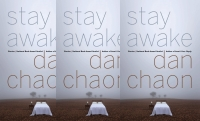Poetry about poetry…
Helen Vendler on metapoetry:
In the code language of criticism when a poem is said to be about poetry the word “poetry” is often used to mean: how people construct an intelligibility out of the randomness they experience; how people choose what they love; how people integrate loss and gain; how they distort experience by wish and dream; how they perceive and consolidate flashes of harmony; how they (to end a list otherwise endless) achieve what Keats called a “Soul or Intelligence destined to possess the sense of Identity.”
Emprise is devoting a section of the next issue to metapoetry and we’re eager to see what the indie lit scene has to offer in the sub-genre. Contemplations, musings, etc. on the craft–the creative process in bringing poetry to the page, what you have to say in that regard. We’re looking forward to finding out.
If submitting metapoetry:
- Please mark it as such in the title field.
- Please keep metapoetry submissions separate from other submissions.
- Five poem maximum per submission.
Note: We are still accepting general poetry submissions.
Examples of metapoetry:
Paradoxes and Oxymorons
by John Ashbery
This poem is concerned with language on a very plain level.
Look at it talking to you. You look out a window
Or pretend to fidget. You have it but you don’t have it.
You miss it, it misses you. You miss each other.The poem is sad because it wants to be yours, and cannot.
What’s a plain level? It is that and other things,
Bringing a system of them into play. Play?
Well, actually, yes, but I consider play to beA deeper outside thing, a dreamed role-pattern,
As in the division of grace these long August days
Without proof. Open-ended. And before you know
It gets lost in the steam and chatter of typewriters.It has been played once more. I think you exist only
To tease me into doing it, on your level, and then you aren’t there
Or have adopted a different attitude. And the poem.
Has set me softly down beside you. The poem is you.
A High Toned Old Christian Woman
by Wallace StevensPoetry is the supreme fiction, madame.
Take the moral law and make a nave of it
And from the nave build haunted heaven. Thus,
The conscience is converted into palms,
Like windy citherns hankering for hymns.
We agree in principle. That’s clear. But take
The opposing law and make a peristyle,
And from the peristyle project a masque
Beyond the planets. Thus, our bawdiness,
Unpurged by epitaph, indulged at last,
Is equally converted into palms,
Squiggling like saxophones. And palm for palm,
Madame, we are where we began. Allow,
Therefore, that in the planetary scene
Your disaffected flagellants, well-stuffed,
Smacking their muzzy bellies in parade,
Proud of such novelties of the sublime,
Such tink and tank and tunk-a-tunk-tunk,
May, merely may, madame, whip from themselves
A jovial hullabaloo among the spheres.
This will make widows wince. But fictive things
Wink as they will. Wink most when widows wince.







